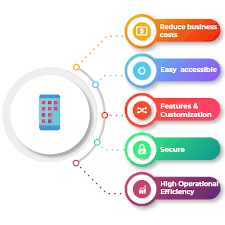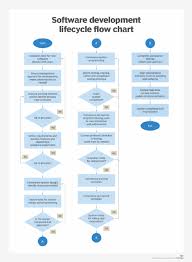Empowering Businesses: The Role of a Web Application Development Company in Today’s Digital Landscape
The Role of a Web Application Development Company in Today’s Digital World
In the fast-paced digital landscape of today, having a strong online presence is essential for businesses to thrive. A web application development company plays a crucial role in helping businesses create custom web applications that meet their specific needs and goals.
Web applications are software programs that run on web servers and are accessed through web browsers. They provide businesses with a platform to interact with their customers, streamline processes, and enhance overall efficiency.
Services Offered by Web Application Development Companies
A reputable web application development company offers a range of services to cater to the diverse needs of businesses. These services may include:
- Custom web application development
- Web design and user interface development
- Database integration and management
- Quality assurance and testing
- Maintenance and support services
The Benefits of Partnering with a Web Application Development Company
By partnering with a web application development company, businesses can enjoy several benefits, including:
- Scalability: Custom web applications can be tailored to grow alongside the business.
- Enhanced Security: Professional developers implement robust security measures to protect sensitive data.
- Bespoke Solutions: Tailored solutions that address specific business requirements for optimal performance.
- User Experience: Focus on creating intuitive interfaces for enhanced user engagement.
The Future of Web Application Development
As technology continues to evolve, the demand for innovative web applications will only increase. Web application development companies will play a key role in helping businesses stay ahead of the curve by providing cutting-edge solutions that drive growth and success in the digital age.
In conclusion, partnering with a reputable web application development company is essential for businesses looking to leverage the power of technology to achieve their goals and remain competitive in today’s digital world.
Top 5 Essential Tips for Web Application Development Companies
- Focus on creating user-friendly and intuitive interfaces for better user experience.
- Stay updated with the latest web development technologies and trends to remain competitive.
- Prioritize security measures to protect sensitive data and maintain customer trust.
- Communicate effectively with clients to understand their needs and deliver tailored solutions.
- Regularly test and optimize your web applications for performance improvements and bug fixes.
Focus on creating user-friendly and intuitive interfaces for better user experience.
In the realm of web application development, prioritizing the creation of user-friendly and intuitive interfaces is paramount for delivering an exceptional user experience. By focusing on designing interfaces that are easy to navigate and understand, web application development companies can significantly enhance user satisfaction and engagement. A well-crafted interface not only improves usability but also fosters positive interactions, ultimately leading to increased user retention and overall success of the web application.
Stay updated with the latest web development technologies and trends to remain competitive.
Staying updated with the latest web development technologies and trends is crucial for a web application development company to remain competitive in the ever-evolving digital landscape. By keeping abreast of new tools, frameworks, and best practices, companies can ensure that they deliver cutting-edge solutions that meet the changing needs of their clients. Embracing innovation and staying ahead of the curve not only enhances the quality of services provided but also positions the company as a leader in the industry, attracting new opportunities and fostering long-term success.
Prioritize security measures to protect sensitive data and maintain customer trust.
In the realm of web application development, it is paramount to prioritize robust security measures to safeguard sensitive data and uphold customer trust. By implementing stringent security protocols, such as encryption, firewalls, and regular security audits, a web application development company can fortify its systems against cyber threats and potential breaches. Maintaining the integrity and confidentiality of customer data not only ensures compliance with data protection regulations but also fosters a sense of trust and reliability among users, ultimately enhancing the reputation and credibility of the company in the digital landscape.
Communicate effectively with clients to understand their needs and deliver tailored solutions.
Effective communication with clients is a cornerstone of successful web application development companies. By actively listening to clients and understanding their specific needs, developers can create tailored solutions that align with the client’s goals and expectations. This collaborative approach not only ensures client satisfaction but also leads to the delivery of high-quality web applications that meet and exceed client requirements.
Regularly test and optimize your web applications for performance improvements and bug fixes.
Regularly testing and optimizing web applications for performance improvements and bug fixes is crucial for ensuring a seamless user experience. By conducting thorough testing and optimization processes, a web application development company can identify and address any performance bottlenecks or bugs that may impact the functionality of the application. This proactive approach not only enhances the overall performance of the web application but also helps in maintaining its reliability and efficiency, ultimately leading to increased user satisfaction and engagement.












